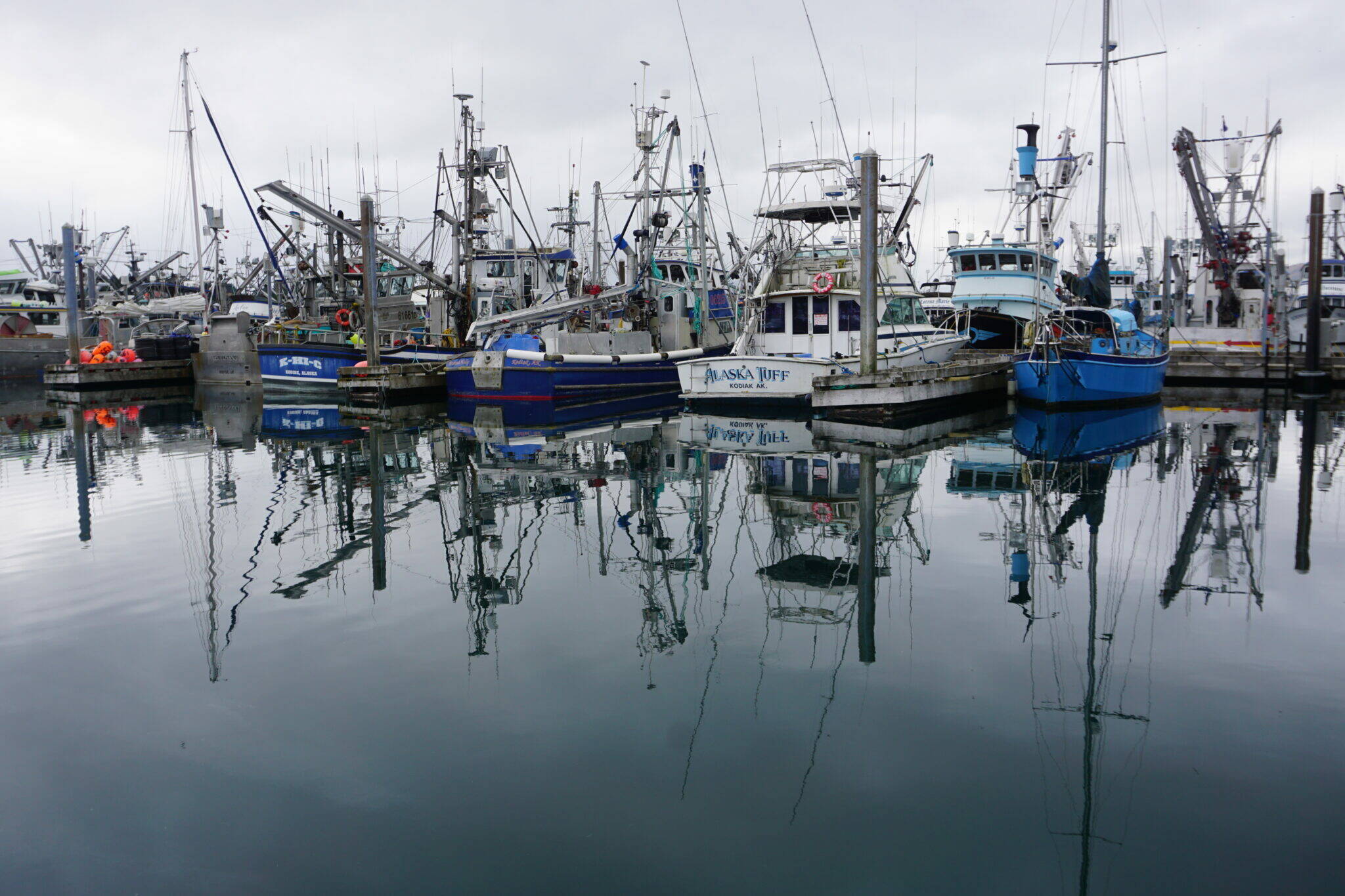Alaska Republican Gov. Mike Dunleavy has appointed a GOP advertising consultant and talk show host to a highly paid state government job: a position overseeing commercial fishing permits.
Dunleavy this month appointed Mike Porcaro as one of two commissioners overseeing the Commercial Fisheries Entry Commission, or CFEC — an obscure, Juneau-based agency with some 20 employees.
The commission issues annual commercial fishing permits, grants and denies permit transfers in the event of illnesses and deaths and publishes fisheries reports and statistics.
Porcaro is a Dunleavy ally whose communications firm has worked for the governor’s campaigns, and who has hosted the governor as a guest on his talk radio show.
Porcaro will work remotely from his home in Anchorage, continue hosting his daily radio program from 3 p.m. to 6 p.m. and run his advertising agency outside work hours, he said.
Porcaro’s new job would pay $136,000 a year if he works full time, but he may work less than that and will only be compensated for the hours he reports having worked, said Glenn Haight, CFEC’s other commissioner.
Porcaro, 75, has never been a commercial fisherman and didn’t ask for the job, but he said he was willing to take it when Dunleavy’s office made him the offer.
“All I’m doing is trying to answer a call of service, and I’m going to do the best job I can do,” Porcaro said in an interview Thursday. He added: “Judge me on my performance.”
In a prepared statement, a Dunleavy spokesman, Jeff Turner, called Porcaro a “longtime Alaskan and successful business owner with comprehensive knowledge and participation in Alaska’s business, nonprofit and public policy spheres.”
“His background will bring fresh insights and perspectives to the Commercial Fisheries Entry Commission,” Turner said.
To keep his new job, Porcaro will have to be confirmed by the Legislature.
While many past CFEC commissioners have either worked as attorneys or had some level of experience in or around commercial fisheries, that’s not actually a requirement: State law says appointees should have a “broad range of professional experience” and no economic stake in commercial fishing permits or boats.
Kodiak Republican Rep. Louise Stutes, a member of the House Fisheries Committee who’s tracked CFEC’s work, said she’d have to look into the governor’s decision to name Porcaro to the agency.
“It just seems like an odd appointment to me when you have no knowledge of the fishing industry,” she said.
Porcaro’s appointment may revive a focus on a state agency that policymakers have scrutinized periodically over the past decade as its purpose, and workload, have evolved.
CFEC was established in the 1970s after Alaska voters approved a constitutional amendment to limit access to the state’s commercial fisheries — a right that had previously been guaranteed to all residents.
The commission’s original focus was deciding which fisheries to limit and deciding which commercial fishermen would get the valuable permits, based on their past history in the industry. But that work was largely finished by 2010: Commissioners’ decisions on individual permits, known as adjudications, dropped from dozens a year to just two or three.
A pair of critical audits around that time suggested that CFEC’s highly paid commissioners could be reduced to part-time or replaced by members of the governor’s cabinet.
But the commissioners and commercial fisheries interests lobbied against proposed bills that would have reduced commissioners’ salaries and transferred CFEC’s duties to the Department of Fish and Game. And a veteran commercial fisherman and industry lobbyist, Bobby Thorstenson, filed a lawsuit challenging an executive order from former Gov. Bill Walker that would have made similar changes.
While the commission also has an executive director who handles administrative work, like human resources, CFEC commissioners still have several key duties, said Haight. Haight, a former executive director of the Alaska Board of Fisheries, has been in his post since last year.
Commissioners review appeals of emergency fishing permit transfers that are denied by CFEC staff. They consider whether certain open-access fisheries could be newly limited. And they are working with agency staff on a project to modernize the commission’s outdated databases and information technology systems.
While it’s “fair” to ask about commissioners’ workload, Haight said, “there’s plenty to do.”
“It’s not terribly sexy, but it’s really just moving this organization to, really, what is its next iteration,” he said.
And adding an outsider’s perspective like Porcaro’s, Haight said, can be useful.
“It helps to have some balance,” he said. “I’ve been at this long enough to know that it does help to have a couple of sets of eyes on it.”
Thorstenson, the veteran fisherman who’s defended CFEC’s work, acknowledged that a commissioner appointment is “one of the most plum jobs up there.”
But in an interview from his fishing boat Thursday, Thorstenson agreed with Haight that commercial fishing experience isn’t necessary.
“Sometimes having a nonfish person can be kind of refreshing,” he said. “We can get stuck in a rut.”
• This article was originally published in Northern Journal, a newsletter from Herz. Alaska Beacon, an affiliate of States Newsroom, is an independent, nonpartisan news organization focused on connecting Alaskans to their state government.

